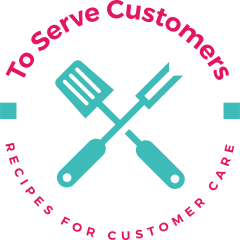When you think about customer care, do you picture a huge call center full of impersonal agents, all dressed pretty much the same, handling calls and emails as quickly as possible?

Or do you imagine a smaller team waiting to provide you, surely the only customer who needs assistance, with exceptional customer care?

There are really four types of customer care teams, all capable of delivering great service (and all equally capable of delivering abysmal service!):
- Call center: these can be in-house or outsourced. They’re probably not going to be able to offer super personal service, but they should be able to solve your problem efficiently and with a friendly touch. Noting here that I’m using “call center” even though much of the work done is answering incoming emails rather than actual calls.
- Standard in-house customer care team: usually a smaller team for a smaller company. The demand on these agents is often quite high, especially if the business is growing. Incoming queries are still likely to be pretty standard and don’t require much customization. Again, service is not likely to be particularly personal, but should be efficient and friendly.
- Bespoke: there are standard inquiries, but they often have unique elements. Answers are customized and effort is made to make each customer feel special. One agent will be the primary contact, though other agents may jump in occasionally.
- White-Glove: each customer is treated like the only customer. Most likely, only one agent will handle each customer (though an agent may handle multiple customers).
Which kind of team your company chooses to go with should depend primarily on two factors: the size of your customer base and the type of service inquiries you get. Amazon can’t provide white-glove or even bespoke service – nor do they need to. Their customer base is huge, and their service inquiries are largely going to be order or product related, with standard answers. A call center solution is perfect for them.

On the other hand, the makers of my favorite work bag*, Rareform, can probably get away with a smaller in-house team. They don’t really need bespoke or white-glove service — their inquiries are still going to be pretty standard order/product related, but there are going to be fewer of them, so a smaller team should be able to process them efficiently. Sometimes companies like this will have an small in-house team for customer care, but outsource phone orders to a call center that specializes in order processing. This is a very reasonable way to handle demand, but make sure the order volume justifies the expense!
 Companies that offer bespoke or white-glove customer care are generally service-oriented rather than product-oriented. The interactions are likely to unfold over time rather than being a simple back and forth about a shipment delay or faulty product. Agents providing this level of care need to truly be empowered to be the voice of the customer — they’ll need to be able to bring concerns and complaints to various departments, and they’ll need to be empowered to find and implement solutions for their clients.
Companies that offer bespoke or white-glove customer care are generally service-oriented rather than product-oriented. The interactions are likely to unfold over time rather than being a simple back and forth about a shipment delay or faulty product. Agents providing this level of care need to truly be empowered to be the voice of the customer — they’ll need to be able to bring concerns and complaints to various departments, and they’ll need to be empowered to find and implement solutions for their clients.
Whichever solution — or combination of solutions — is right for your company, great customer care should be your goal. This means empowering your CSRs to assist your customers, but even more, it means empowering your CSRs to bring you customer feedback, and being responsive to that feedback. More than any survey you can do, your agents will have first-hand knowledge of your customers’ likes, dislikes, requests, and complaints.
Next up, more on listening to the voice of your customer through your customer care department.
*I have a Slate, in case you’re wondering. Fits a 15″ laptop + tablet, notebook, and various other sundry items I commute with, plus it converts easily from backpack to briefcase to messenger bag.
